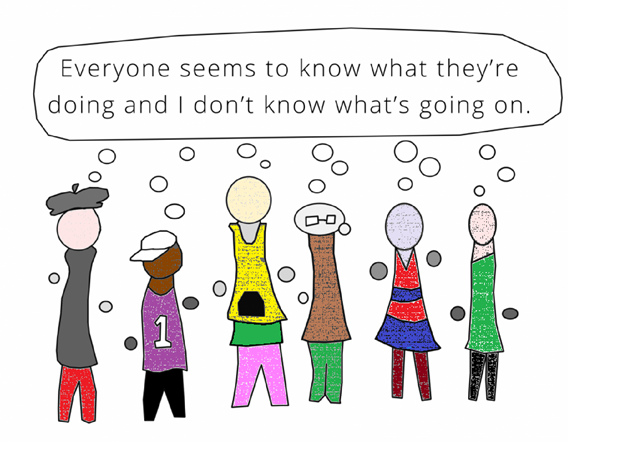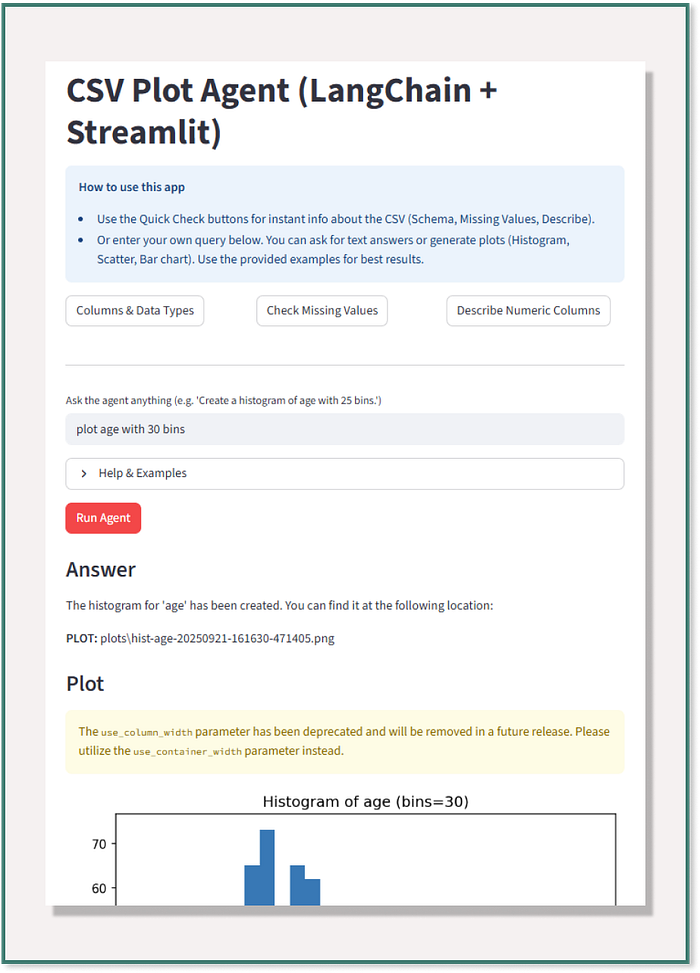
Impostor Syndrome & Data Science
Last Updated on June 16, 2020 by Editorial Team
Author(s): Gautam Kmr
Data Science, Opinion
This is a topic or issue that most of the data scientists have and no one thinks other people have it and no one talks about it as well. Let us try to understand what this syndrome is all about and how does it affect our careers. I would also try to bring up some ways using which we can overcome this syndrome.

Table of Contents:
What is Impostor Syndrome?
What has data science to do with Impostor Syndrome?
Why is Impostor Syndrome so prevalent in data science?
How can impostor syndrome end the career of a data scientist?
Various ways to deal with Impostor Syndrome
What is Impostor Syndrome?
Impostor syndrome (also known as impostor phenomenon, impostorism, fraud syndrome, or the impostor experience) is a psychological pattern in which one doubts one’s accomplishments and has a persistent internalized fear of being exposed as a “fraud”.
Interestingly, Impostor Syndrome is now being discussed as a phenomenon affecting those working in the field of data science.
The good news is that Impostor Syndrome is not a mental health condition, it’s better defined as a reaction to a set of circumstances (although some clinical psychologists say the feeling of being a fake can sometimes be linked to anxiety and depression).
What is known is that it is more common in high achievers and that signs include perfectionism, overworking yourself, constantly pointing out your own mistakes, fear of failure, and discounting of praise.
What has Data Science to do with Impostor Syndrome?
There are a few common questions/things that run through the minds of most of us:
I am not a real data scientist.
I have never used NLP, TensorFlow, or Keras.
I don’t have a proper degree in Data Science.
I don’t know how to deal with images/audios/videos. Etc.
If these things sound familiar to you, then you are not alone. You are not the only one who wonders how much longer they can get away with pretending to be a data scientist. You are not the only one who has nightmares about being laughed out of your next interview.
Imposter syndrome is feeling like everyone else in your field is more qualified than you are, that you will never get hired or if you already have been, that you are a mistake of the hiring process. Despite its statistical implausibility, most of us feel below average.
But I haven’t given up hope. After reading a bunch of job postings, I figured out that all it will take to become a real data scientist is five PhDs and some 87 years of job experience.
Why is Impostor Syndrome so prevalent in data science?
Continuous expansion: Data science is continuously expanding with newer technology each day passing by. There are many factors behind this expansion like- computer memory getting cheaper, the popularity of open-source systems, more and more people showing interest in this field, and contributing towards it. This is very healthy for the community however, it leads to a lot of new technologies for data scientists to learn and a culture where there is pressure to stay on top of the field.
Newer field: Data science is very new when compared to other existing technologies/fields of study. It was only 7–8 years ago when the term data scientist was coined out. Since data science was not being taught in schools/colleges before that, most of the data scientists do not have a proper degree in data science as they come from different streams.
Combination of other fields: Data scientist is a combination of many different positions/roles such as — an analyst, statistician, engineer, machine learning professional, visualizer, database specialist, business expert. All of these are very deep positions on their own and it's very obvious when a person from any of these fields comes into data science will have gaps in understanding from other fields on the list.
So, we people coming from different backgrounds to a new field whose boundaries are not defined. Hence, causing gaps in the knowledge of that field as a whole. In addition to that, the technology is evolving faster than a single person can keep up with. These are the main reason for the Impostor Syndrome in data scientists.
How can impostor syndrome end the career of a data scientist?
Impostor syndrome gives birth to thoughts like
I need to learn python, R, Scala, Java, Keras, deep learning, NLP
When we see numerous tools and technologies available for learning, sometimes we lose the charm to learn them as we tend to learn all of them. We should not lose focus. All these are just tools/languages. Knowing them is good but mastering and using one of them effectively will lead to a better outcome.
Okay, I have decided to take one of the technologies. How would I determine if I am good enough on it?
This is another feeling which leads to impostor syndrome. One tends to doubt his/her own knowledge and capabilities of the tool/technology that s/he has mastered. There are many things that comprise the word good. Be it the speed, clean code, documentation, effective product, etc. We must document all our work, be it small or large. These show our progress and eventually figure out our strengths.
I have worked on n number of years on it. Am I supposed to know this?
It is impossible for a human to know everything. It is good that you have an experience of n number of years but accepts the fact that you can not know everything. Not knowing something keeps a room for improvement.
My work is so immature, there are experts out there
The fear of judgment and rejection is one main reason which leads you to a place where you don’t want to be. Feedback is very useful for improvement and must be integrated into our work.
Various ways to deal with Impostor Syndrome:
If we can agree that data scientists learn on the job, I think the best thing that we can do for reducing impostor syndrome in the data science community is to be open in acknowledging it.
Encourage questions — asking questions is exactly the thing data scientists should do and encourage others to do as well. It has a two-fold benefit:
a. You get knowledge through conversation
b. Asking questions publicly encourage others to ask more question which in turn further increases the volume of knowledge shared.
Get comfortable with ‘I don’t know’ — It takes courage to acknowledge that you don’t know something in public. However, accepting the fact that you do not know something opens the room for improvement.
Share your work — When I see others sharing their work and learnings, it encourages me to share my work too. It also helps me evaluate whether I know much about that topic or not.
Recognize what’s happening — Ask yourself, “Why am I doubting myself?” Try to identify why you have feelings of insufficiency. Even just recognizing your behaviors can help minimize them so you can reset and refocus with confidence.
Remember, you are not alone — When I feel doubtful, I remember Jodie Foster saying “I thought it was a big fluke. I thought everybody would find out, and then they’d take the Oscar back” after winning the Oscar in 1988. There have been successful people all around with this syndrome.
Understand there is a journey ahead — Just acknowledging that you have impostor syndrome, won't enable you to overcome it. It takes the mindset of “I have overcome this earlier and I will do it again”.
Look at the data — Looking back at the achievements from the past helps us regain confidence in our work and boosts the thought process to identify the missing pieces.
Give others perspective about their achievements — When someone shows signs of self-doubt, ask, “Why do you think you’re struggling with confidence here? Does the evidence suggest you’re not performing well?” Help that person gain the same perspective you have discovered.
A little bit of transparency goes a long way towards staving off imposter syndrome. We can embrace both being knowledgeable and not knowing things — and do so in public.
I would love to read about the ways that others use to deal with impostor syndrome.
Impostor Syndrome & Data Science was originally published in Towards AI — Multidisciplinary Science Journal on Medium, where people are continuing the conversation by highlighting and responding to this story.
Published via Towards AI
Take our 90+ lesson From Beginner to Advanced LLM Developer Certification: From choosing a project to deploying a working product this is the most comprehensive and practical LLM course out there!
Towards AI has published Building LLMs for Production—our 470+ page guide to mastering LLMs with practical projects and expert insights!

Discover Your Dream AI Career at Towards AI Jobs
Towards AI has built a jobs board tailored specifically to Machine Learning and Data Science Jobs and Skills. Our software searches for live AI jobs each hour, labels and categorises them and makes them easily searchable. Explore over 40,000 live jobs today with Towards AI Jobs!
Note: Content contains the views of the contributing authors and not Towards AI.














